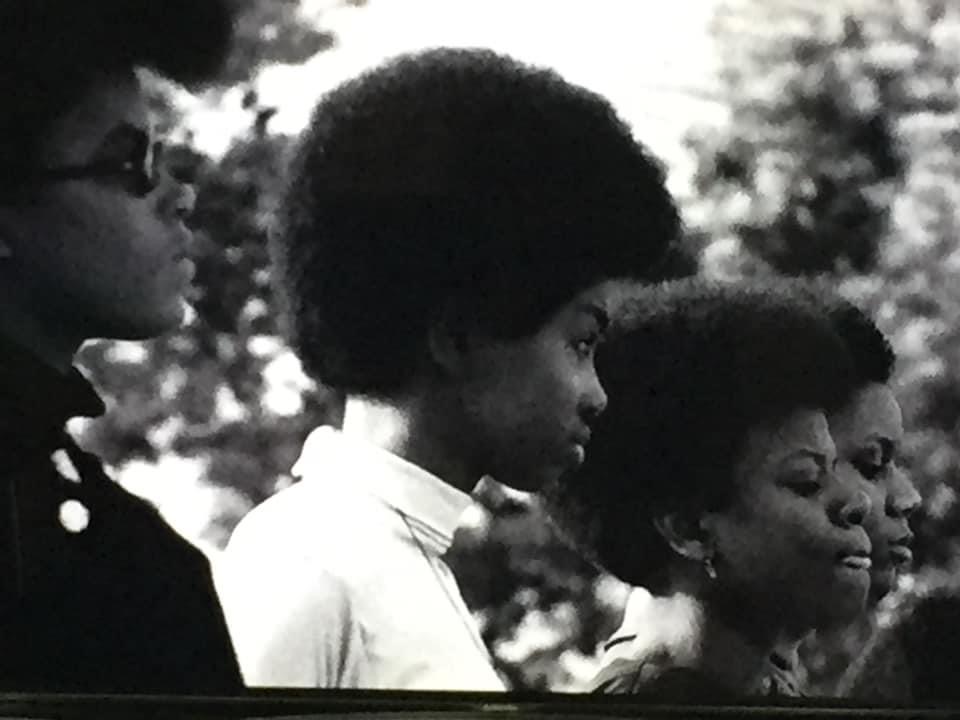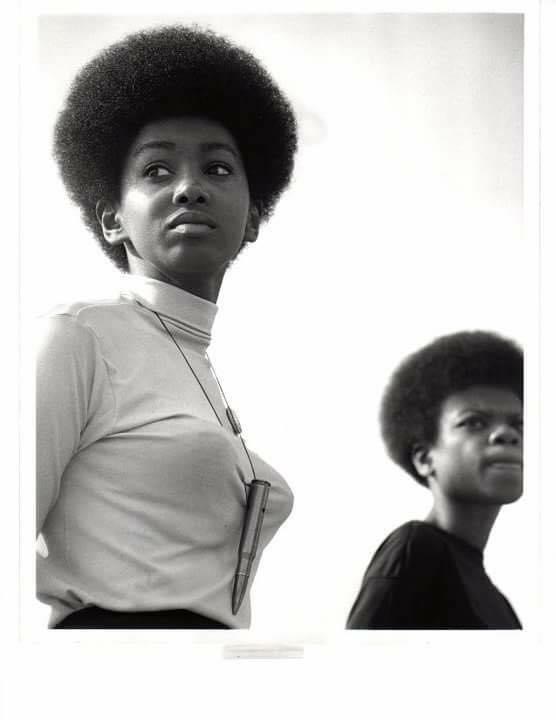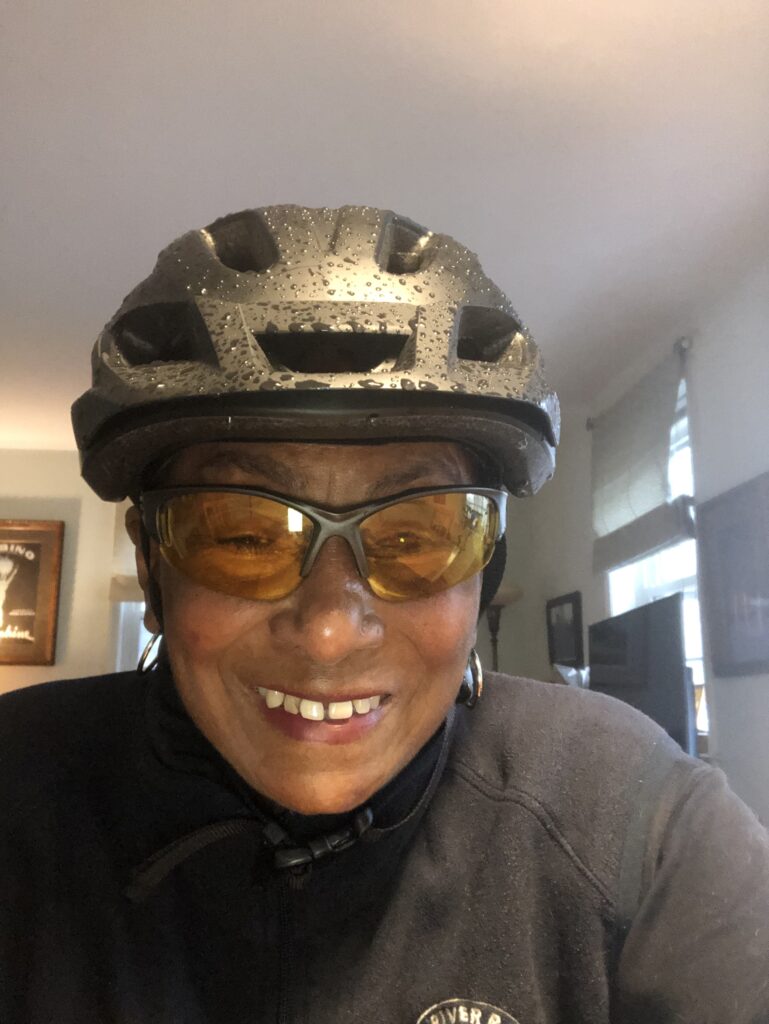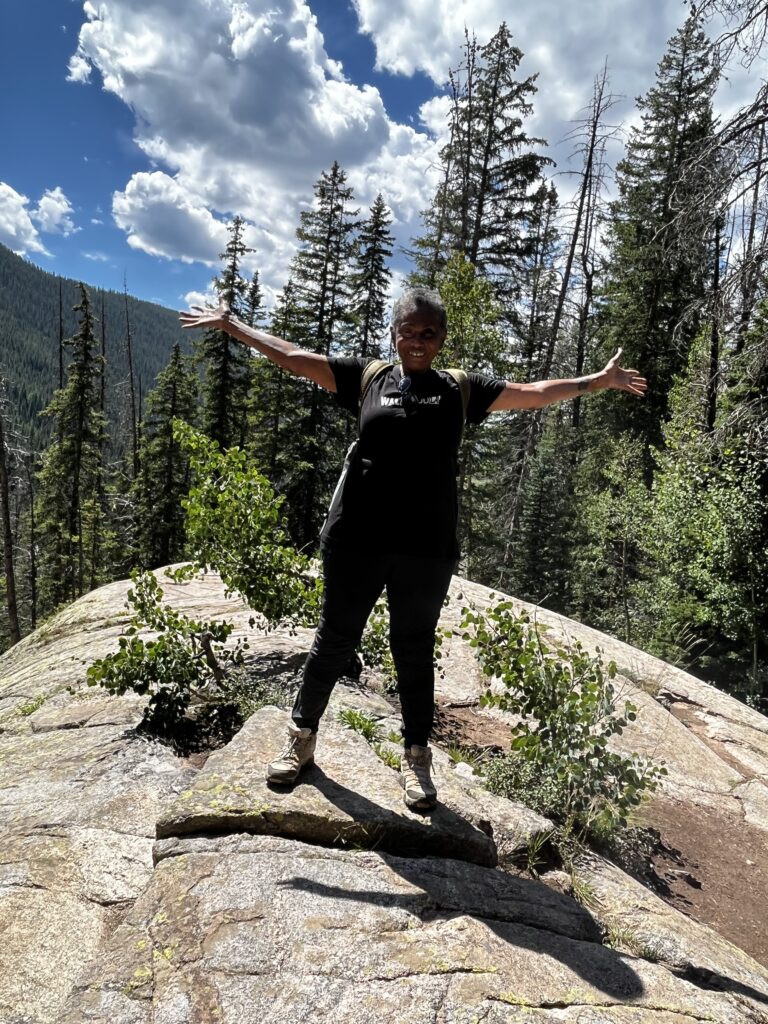
Gayle Fleming is a remarkable Climate Hiker who has taken on Climate Hike Glacier at the age of 75. With a passion for the environment and a commitment to living a healthy and active lifestyle, Gayle serves as a role model for healthy aging while making a difference in the fight against climate change. This will be her second event with Climate Ride and it comes ten years after she joined us in 2013 for our Climate Ride from NY to DC when she was 65.
Climate Ride (CR): Gayle, what inspired you to embark on your climate hiking journey at the age of 75, and what keeps you motivated to continue making a difference?
Gayle Fleming (GF): In addition to being a passionate advocate for the environment and living sustainably, I am also a passionate advocate for living a healthy active lifestyle into old age. I don’t believe that being old means being broken down, inactive and living from one doctor’s appointment to the next to deal with chronic illness. So I want to be a role model for healthy active aging. Honestly what keeps me wanting to make a difference is children. I just can’t stop trying to make the world better for them.
CR: As someone who has been living sustainably for almost five decades, what changes have you witnessed in environmental awareness and action over the years?



CR: Could you share some of the most memorable moments or encounters you’ve had while hiking, and how they have shaped your perspective on climate change?
GF: The world is such a spectacularly beautiful place. Hiking in Beaver Creek, CO in September when the aspens are in their most shimmering glory is unforgettable. But I have to say hiking the Navaho Loop Trail in Bryce Canyon National Park was amazing. When I got to the bottom, I felt like I was in some prehistoric setting. But for me the most surprising and amazing hikes I have done was in Cedar Breaks National Monument in Utah. The Hoodoos and the ancient bristlecone pine trees blew my mind. I want future generations to be able to witness these wonders. It’s why I can’t stop doing whatever I can to this end.
CR: How did your background as a real estate agent with a focus on sustainability influence your decision to become a Climate Hiker and advocate for positive change?

GF: When I returned to real estate after a 5 year break in 2008 (just when real estate was about to collapse the economy) I was determined to bring an awareness of the looming climate emergency into my work. Very early on I earned an EcoBroker designation. This was before NAR had adopted a “green” designation. When that was available I earned that designation as well. I learned as much as I could about green building and remodeling. And I tried to guide my clients toward housing that would meet the most sustainable guidelines within their price points. It was frustrating though because I was often a lone voice competing with stainless steel appliances and granite countertops. Materials that were more sustainable were always more expensive. One thing I tried to do was talk buyers out of buying the biggest house they could afford. I live in a one bedroom condo. My footprint is deliberately small.
GF: I know I should give an upbeat positive answer to this question. But if you listen to the words of Marvin Gaye 50 years ago from his seminal album What’s Going On, and the questions he poses about the environment, the sad answer is not much. Oh, the awareness is there. But the will to change on the scale needed isn’t.
CR: As a vegan, how do you believe that adopting a plant-based lifestyle can contribute to mitigating climate change and promoting sustainability?
GF: When I first became a vegetarian in 1976 I knew nothing about the environmental implications of factory farming. It was my growing awareness of health that started me on the journey. It was the book Diet for a Small Planet that first made me aware of how unsustainable factory farming animals was. I became vegan in 2015, again, initially for personal health reasons. There is no doubt now that the factory farming of animals, in addition to the sheer cruelty, is a major factor in climate degradation. So adopting a plant based lifestyle and spreading the word without proselytizing is a critical piece in the fight to mitigate climate change.
CR:How has your experience as a yoga teacher influenced your approach to environmental activism and the way you connect with nature during your hikes?
GF:I have been a yoga teacher for 25 years. But I have been doing yoga for 47 years. I have been meditating for over 40 years. The teachings of yoga are the teachings of the oneness of everyone and everything. The interconnectedness to the planet and others is a central tenet in yoga philosophy. So my goal as a yoga teacher is not to teach someone to stand on their head necessarily, but to foster that sense of connectedness to all by connecting first to their deeper and more illusive selves.
CR:Through your efforts, you’ve raised over $12,000 for the Climate Ride movement and Harlem Grown. What advice would you give to individuals who want to make a difference in addressing climate change but may feel overwhelmed or unsure where to start?
GF: My advice is to start somewhere. Educate yourself on at least one aspect of the environmental movement that speaks to you. Find something positive to motivate you. As dire as the situation is, doom and gloom is not a motivator.
CR:In your opinion, what role do grassroots movements and community engagement play in driving meaningful change towards a more sustainable and climate-resilient future?
GF: Grassroots efforts will often be the biggest motivator for people to get involved. Harlem Grown, the organization that I have chosen to receive the money I raise is a grassroots as it gets. Teaching poor children in the food desert of Harlem to grow healthy food is the catalyst for teaching them and their families about the need for sustainable living in a direct and hands on way.
CR:How do you engage with your supporters to raise awareness about climate change and inspire action? Are there any particular strategies or messages that you find most effective for fundraising?
GF: I think it is important to be positive (even when I don’t necessarily feel that way). All of my friends and family know me to be a passionate advocate for social justice, the environment, etc., but they also know me to be positive and joyful. What they may not know or understand is that my joy is an inner joy that can be shaken by, but not dislodged by the external events of the world.
CR:What are some of the biggest challenges you’ve faced during your climate hiking journey, and how have you overcome them?
GF: My biggest challenge and the reason I didn’t do the hike last year is arthritis in my 75 year old knees. I am definitely a candidate for knee replacement surgery but am adamant to not go that route. Once I realized that cortisone shots only hasten the inevitable knee replacement surgery I stopped getting those. So I had to embark on my own journey to find a way to not go under the knife. What has worked is weight training, movement in the form of walking and hiking, an infrared laser massager and a gel called Voltaren. Right now I can say that I am mostly pain and discomfort free.
CR:How do you see the intersection between environmental sustainability and social justice, particularly in the context of organizations like Harlem Grown that you support?
GF: There is no doubt that worldwide the people who will suffer most, in fact are already suffering the most from the negative effects of climate change (exacerbated by rampant greed and the profit motive), are poor and mostly black and brown people. So climate change activism has to be a social justice movement. However the people most affected are often too busy with everyday struggles to survive to be the climate and social justice warriors. So those of us who are privileged, have the privilege of doing the work to facilitate the change that is needed.
CR: What specific actions or policy changes do you believe are necessary to address climate change effectively, and how can individuals and communities contribute to these broader efforts?
GF: This probably isn’t the answer most people want to hear. I think the most important thing that needs to be done to fight all of the myriad problems that endanger the planet and so many of the people, animals and plants that live on it, is to somehow temper the unfettered capitalism that fuels greedy, reckless profit at any cost. I am not advocating for an end to capitalism (necessarily). But I do believe there should be more government regulations and oversight so that the greater good supersedes the never ending quest for more profits for shareholders. I am under no illusion that this will happen any time soon. I’m just answering the question as I see it.
CR: Sometimes, it’s the answer folks don’t want to hear that they need to. And unfettered capitalism has definitely been at the forefront of generating the situation we are in now. How do you envision the world your granddaughters will inherit if we collectively take action to address climate change, and what message do you have for future generations?
GF: My granddaughters are not a good example. Because of their privilege they will live the best possible life no matter how bad things get if we don’t act soon to get climate change under control. I don’t know how bad it will have to get for the world to act in defense of the earth. I think a healthier attitude, and how I see this struggle and all struggles for light over darkness, is to do what I can and to live in a way that supports all the values I hold dear and be of benefit as best I can. Fifty years ago Marvin Gaye begged us to Save the Children. Will we?
CR: If you’d like to support Gayle, you can donate to her campaign here. Gayle also recently wrote an a piece for CNN on her time with the Black Panther Party which we highly recommend reading here. You can learn more about her life and yoga practice in a recent feature in Arlington Magazine.